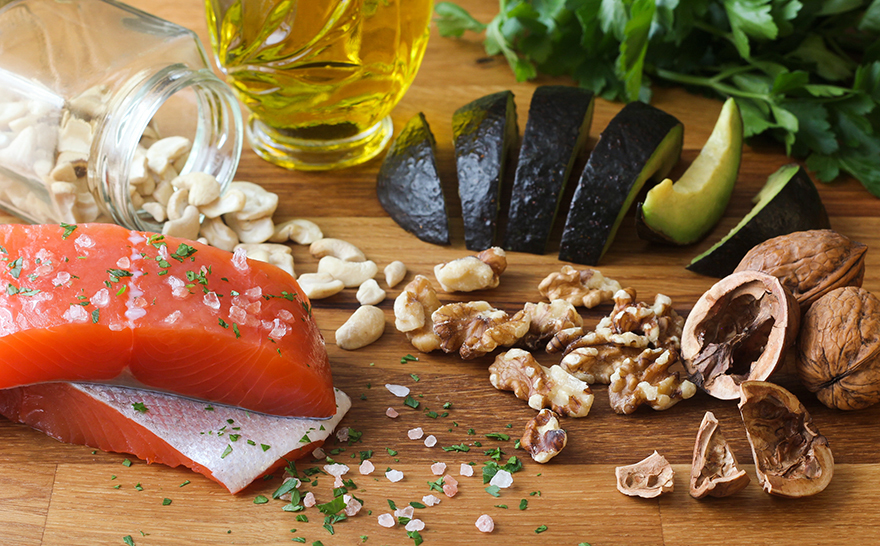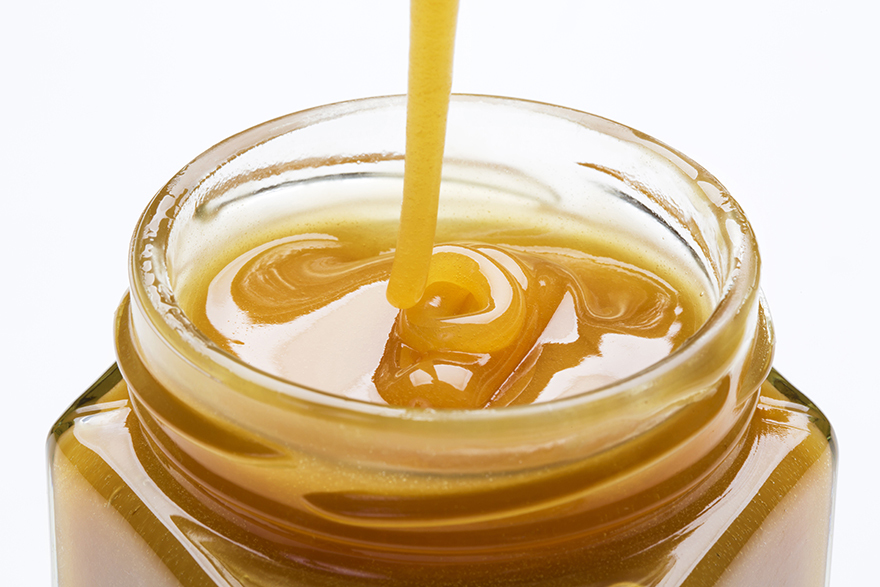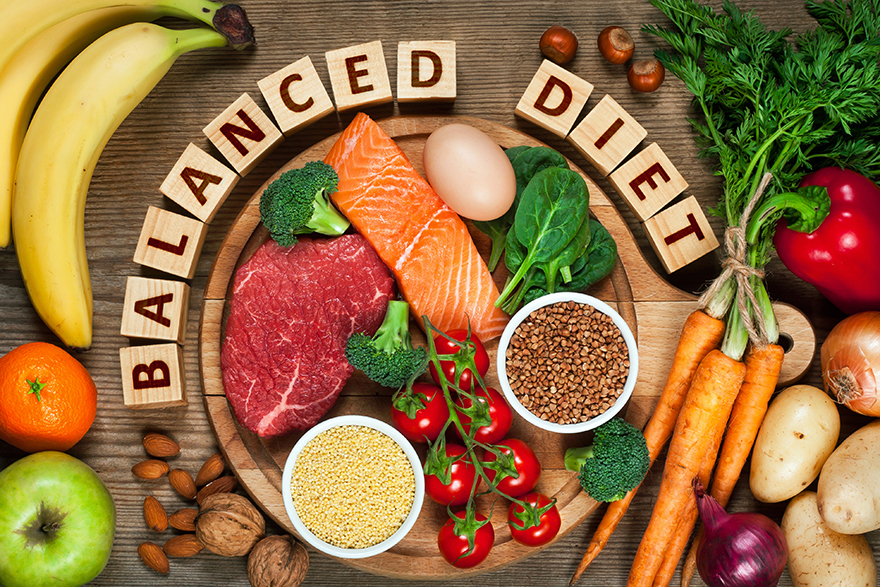Eczema: 5 Ways Changing Your Diet Could Help

By Sally Temple, Nutritional Therapist, Nuffield Health
Your diet could be having an effect on your skin’s condition. Eczema is a condition that can be miserable to live with. It is a chronic, inflammatory skin condition that can leave you with red, dry, itchy, scaly skin. Sometimes there are tiny blisters and often the skin can split, causing pain. It’s common for children, with up to 12% of children suffering with the condition. And it can persist into adulthood.
While eczema can be persistent, it is possible to improve symptoms, and adapting your diet can make a huge difference. Here’re five common ways to improve your symptoms of eczema.
1 Eliminate Allergens
Over 80% of eczema sufferers have higher than normal antibodies in their system. Effectively, they are having an allergic reaction. Many also suffer from allergic rhinitis, hay fever and/or asthma.
The most common sources of allergic reactions are milk, eggs, peanuts, fish, soy, wheat, gluten, citrus and chocolate.
An elimination diet, cutting out these foods one at a time, can be a good way to identify if they are contributing to your eczema. This should be done with guidance from your GP or Nutritional Therapist who can give you advice about replacement foods and ensure that you are not missing out on any important nutrients.
You can also try a rotation diet, where you only eat some of these highlighted foods once every four days. This is sometimes useful in improving symptoms.
2 Take Probiotics For Healthy Digestion
The health of the digestive tract can have an effect on eczema sufferers by supporting your immune system. The development of a healthy immune system depends on having a diverse range of bacteria in the gut from birth and specific strains of probiotics (healthy bacteria) have been found particularly helpful for building a strong immune system – these include Bifidobacteria and Lactobacillus species.
Pregnant women with eczema in the family might be interested in the Swansea baby trial, which found that when a probiotic blend was given to mothers during pregnancy and again to the babies after birth there was a 57% reduction in the development of eczema and 44% reduction in allergies.
3 Follow An Anti-inflammatory Diet
Inflammation is a key component in the development of eczema, so following an anti-inflammatory diet can be beneficial.
Diets high in sugar and refined carbohydrates result in elevated insulin levels, which in turn promotes inflammation. Try instead to eat wholegrain carbohydrate, protein and plenty of vegetables to help keep insulin levels down.
Getting the right balance of fats in the diet can also have an anti-inflammatory effect. If you don’t have allergies, it can be beneficial to eat plenty of oily fish, seafood, nuts, seeds and flax oil. Eat less saturated fat by cutting back on dairy and red meat.
It is worth noting that people with eczema often have an altered ability to metabolise essential fats. Essential fats and in particular omega 3 fatty acids are required for skin health and for their roles in reducing inflammation. The most readily absorbed form of omega 3 for people with eczema is found in oily fish. If it is not possible to eat oily fish three times a week, consider supplementing with a marine algae omega 3 supplement.
A hemp hand cream (containing omega 3 fatty acids) can also be useful for relieving symptoms. Primrose oil or borage oil may also reduce the itching associated with eczema.
4 Swap Skin Care Products For Manuka Honey
Skin care products that contain chemicals can cause eczema to flare up. Avoid products with ingredients like sodium lauryl sulphate, talc, lanolin, propylene glycol, phthalates or any other substance that you react to.
Manuka honey can be a helpful alternative because it naturally contains antibacterial, antifungal and antiseptic properties so can help support the immune system. You can either eat a small amount each day or apply topically.
5 Balance Your Vitamin Intake
Ensuring you have a good balance of vitamins, minerals and flavonoids in your diet can help your skin’s condition. The following vitamins and minerals are particularly relevant for eczema:
Zinc – found in seafood, pumpkin seeds, dark choc, lean red meat.
Vitamin C – found in brightly coloured fruit, veg, and rosehip.
Vitamin E – found in sunflower seeds, almonds, pine nuts, avocado and dried apricots.
Vitamin D – is best absorbed from sunlight in the summer months. You can also supplement with a vitamin D spray through the winter months.
Emerging research suggests that flavonoids (plant molecules) can help to rebalance the immune system and have been found to be beneficial for people with eczema. They have many health benefits but in this instance they appear to help by reducing histamine release and boosting the skin’s ability to fight infection. Research on this area has focused on many different flavonoids but quercetin appears to be especially effective.
Nutritional supplements can be very useful. Always seek advice as there can be nutrient interactions between supplements and medication as well as warnings for certain health conditions and symptoms.











